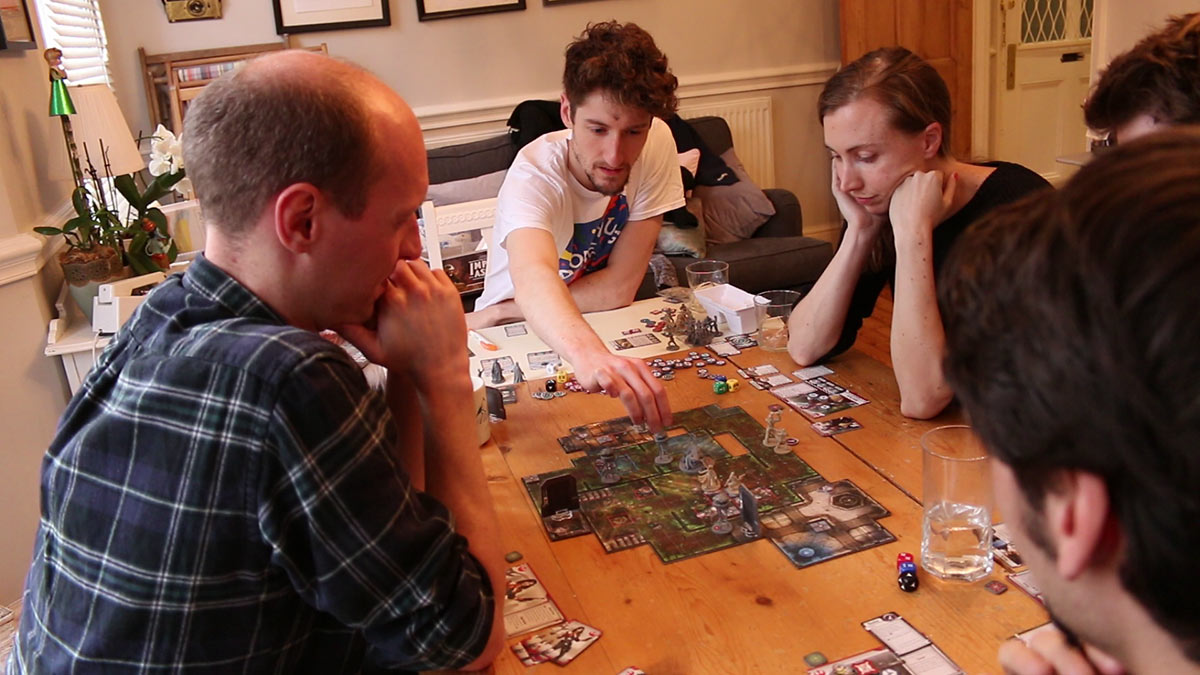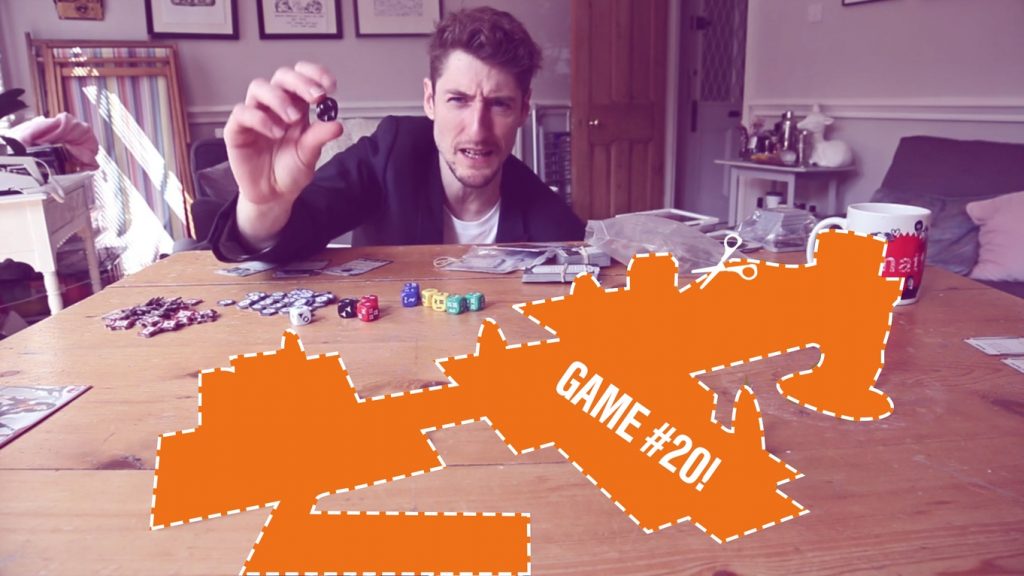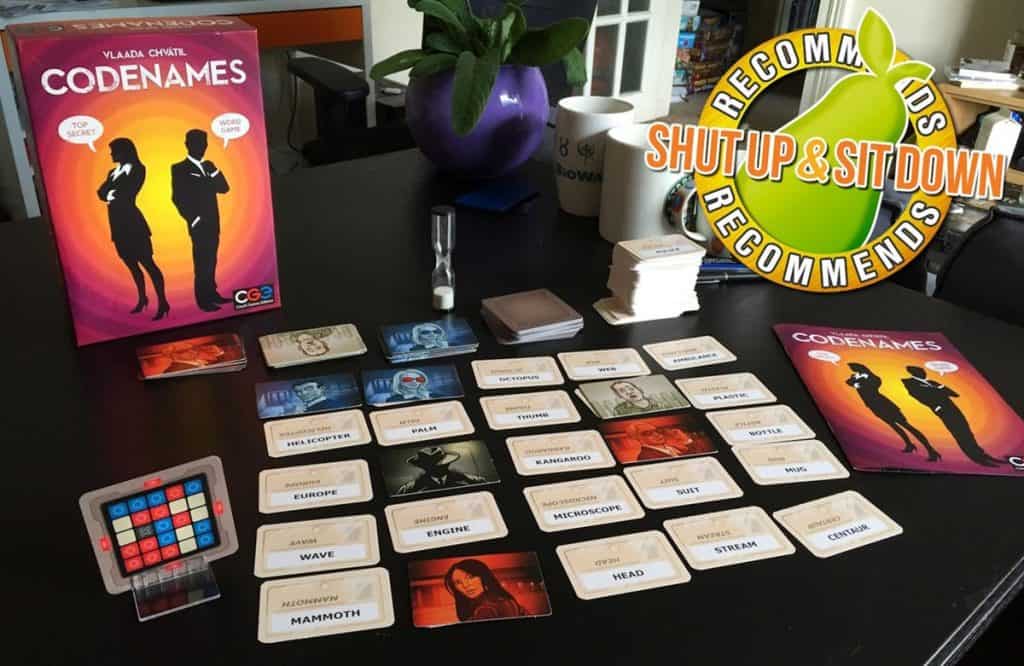Quinns: Matt, we have to abort this feature! Reddit’s disapproval is reaching critical levels.
Matt: That’s not the Reddit alarm, that’s my egg timer. I’m making everybody lunchtime eggs to keep up our strength.
Quinns: Wow! I could kiss you.
Matt: Don’t kiss on me, daddy-oats, kiss on these great games.
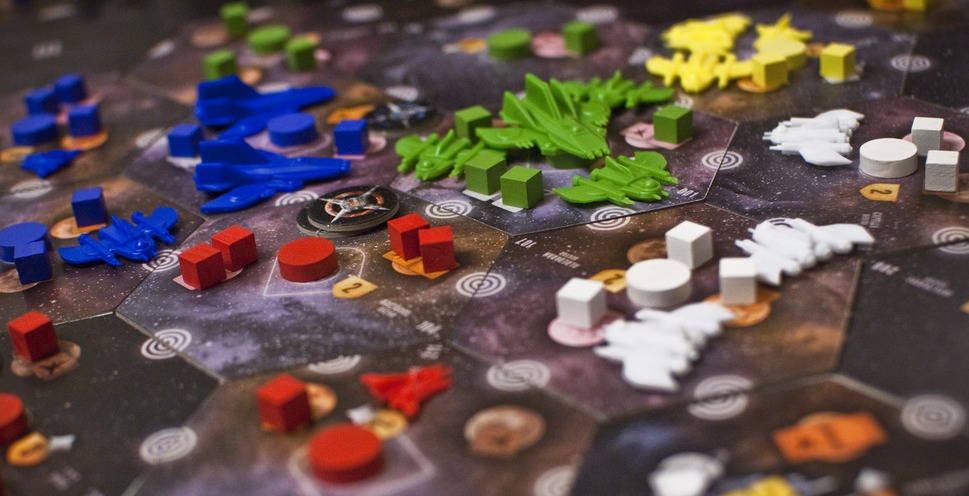
#20: ECLIPSE ![]()
Review here
Paul: So, it’s come to this? Eclipse is above Twilight Imperium? I think I can see why. TI is big, bold, brash and boastful, while Eclipse instead offers something more intricate, incisive and involved. TI swells with thronging fleets that hurl fistfuls of dice at one another in battle, while Eclipse overflows with so many wooden tokens, tokens representing resources, tracking your colonists, your science income… It’s not as attractive or assertive an experience, but it offers more that a community of dedicated and diligent board gamers is going to value. It’s like Star Wars vs. Star Trek, the endless war over that eternal question to which we know the correct answer has always been “They’re both good.”
Quinns: I couldn’t agree more. Eclipse is perfectly positioned as the 20th best board game ever made, and I picture it sitting nobly in this slot like a galactic Empress in a shiny sci-fi throne. But I think what speaks volumes about Eclipse is that I haven’t played this game since I reviewed it, and I’m fine with that. One day I’ll return to this Empress, kneel, and tell her of all the things I’ve seen (and she’ll smile beatifically, only half-interested). It’s the lesser games that you have to make sure you play, lest they be forgotten. A game this good? It waits for you, its position in your life assured.
What we said:
Quinns: For all of Eclipse’s stony artwork and calculated design, it’s more garrulous than any 4X videogame you’ll ever encounter. We’re talking about a grand game, here. A game which feels like an absolute gift from the designer. Not just a game, but an arena where you and your friends will be tested utterly, where you’ll be forced to debate your way out of corners, manage whole armadas, to wield your economy like a cudgel.
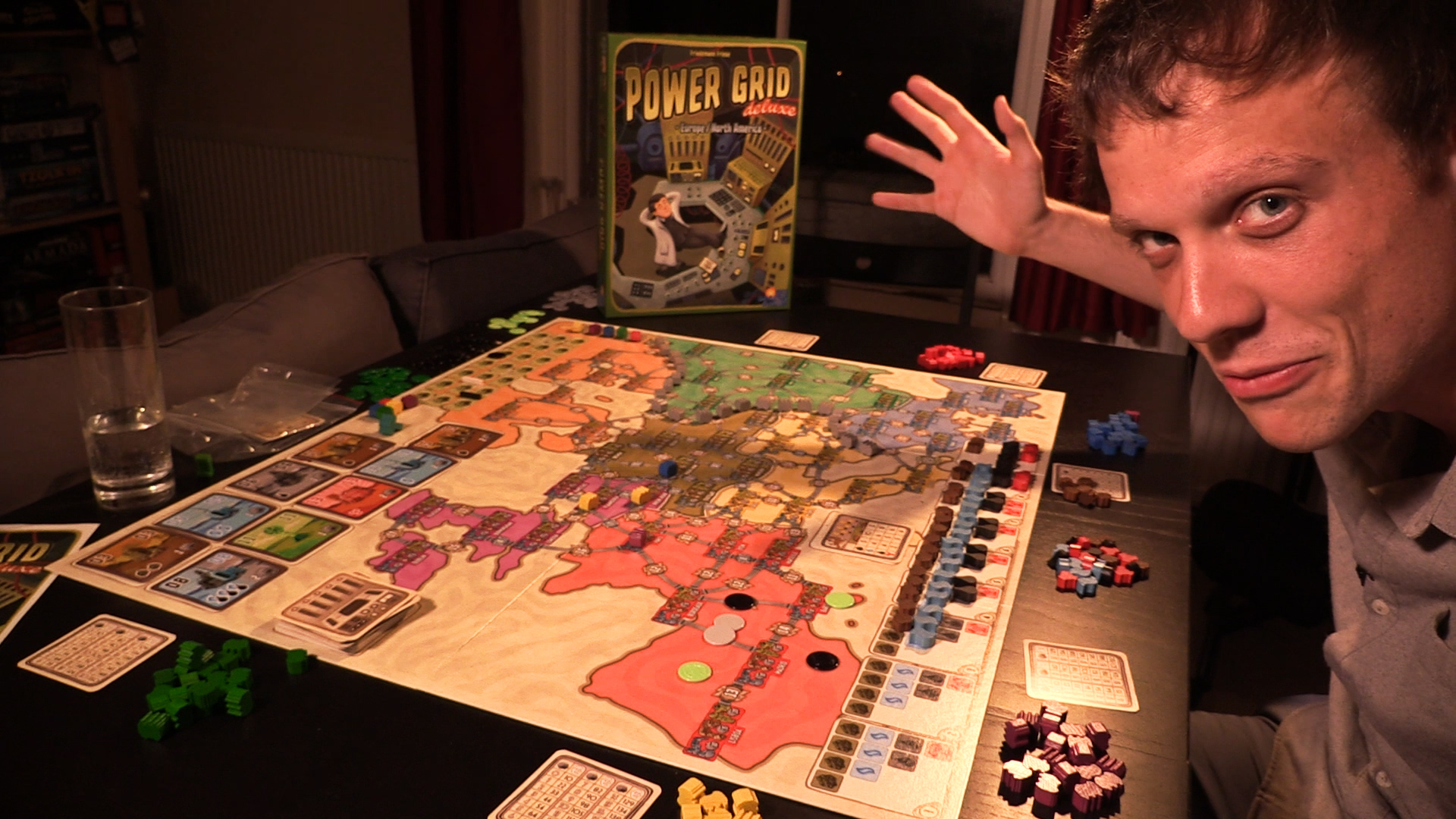
#19: POWER GRID ![]()
Reviews here and here for the Deluxe Edition
Paul: Power Grid is another one of those games that I still like after all these years, but my love for it has nevertheless waned. To me, it’s a game that’s mostly about balancing a series of endlessly changing values, of choosing just the right moment to get out your chequebook, and while this remains a smart game for smart people, it doesn’t capture my imagination nearly so much any more. Still, full credit to Friedemann Friese for giving this game so much more life and variety by creating map after map.
Pip: This was the firstest ever Eurostyle board game I ever played. I had no idea that eating apricots and pretending to be an electricity board bureaucrat would be half as much fun as it was! I should note that I did bring my own apricots before anyone gets any funny ideas. You can’t generate electricity from apricots. Lemons are very different. When life gives you lemons you can make a working electronic clock.
Quinns: At the end of a game of Power Grid my brain feels a bit like a lemon plugged into an electric circuit. In my Power Grid Deluxe review I said I was putting it into the prestigious collection of 100 games found in my living room, but since then I’ve already discarded it to make room for something else.
I still think Power Grid is a magnificent design that offers so much strategy with a minimum of rules, but I had to admit to myself that it wasn’t as much fun as other games I could be playing. On those rare evenings that my group wants something numerical and cruel, we’re going straight to Food Chain Magnate or Chinatown. Crap, Chinatown isn’t on this list, is it?! NOOO!
What we said:
Quinns: I’m not the biggest fan of the numbers Power Grid works with. A lot of economic games have the decency to conceal their figures as if they were nuns, and have players relying on the more accessible concepts of instinct, or scarcity, or very low integers. Power Grid has you doing some serious sums, and that’s not going to be everyone’s idea of a hot Friday night.
Also, Power Grid is almost quixotically German in that it lauds efficiency, clarity and reliability above all else, and players who end up as the smaller rhinos in the crash because they don’t grok these systems as quickly are going to stay smaller and probably come last, and that’s ok if you don’t let them know but Power Grid is a lot more [German accent] “Ya, you are in last place. You are last because ze game knows you played less efficiently! Isn’t zat cool?!”
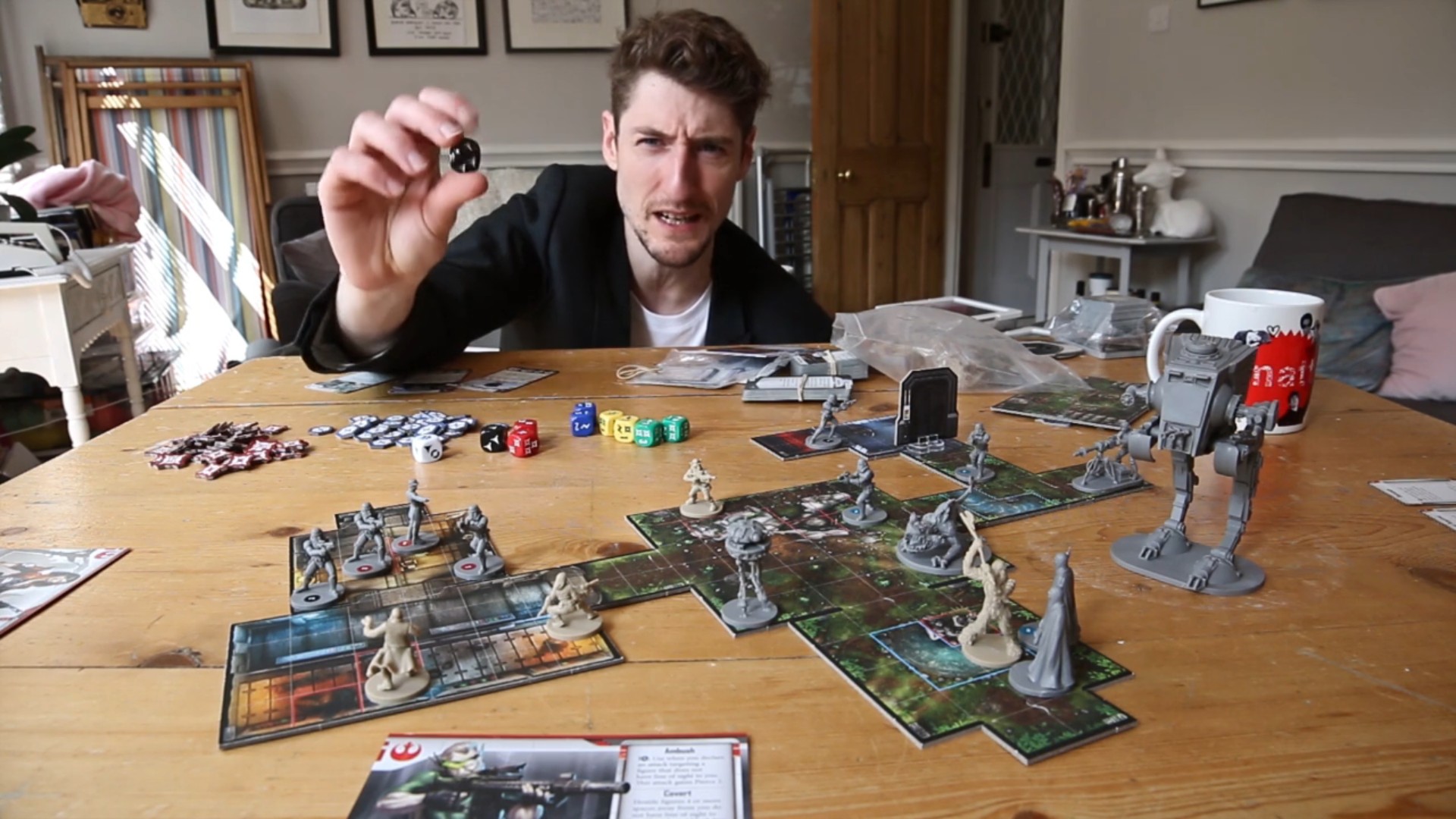
#18: STAR WARS: IMPERIAL ASSAULT ![]()
Review here and learn to play here
Paul: Open the blast doors! Open the blast doors!
Matt: Hugely fond of this one, and it’s telling that everyone who played in my campaign is still poking me about the prospect of starting up another one. Star Wars theming goes a long way, obviously, but I still think the core design here is an excellent engine for exciting adventures. The format still isn’t perfect though – manually balancing the difficulty as you go requires the deft hand of a good GM, and could really do with the support of an app to get a better sense of how players are doing and shake up the rest of the campaign accordingly.
In retrospect I also reckon this is one of the few times where Fantasy Flight’s modern method of including two manuals with the game allowed it to edge into the realm of over-complication: Rule clarifications at the start of the campaign would have really slowed things down if not for my evil sidekick, and whilst all of the rules included make sense – gosh, there really are quite a lot of them. There’s an issue here that I also found with Pandemic Legacy: if you’re only able to meet up for a session once a month, it’s amazing how frequently at least one player finds they’ve forgotten how to play the game – especially as the complexity escalates with new powers, mechanics, and rules. Don’t get me wrong though, this is still A COOL GAME. Oh, and the box also includes special rules and cards for a two player head-to-head game?! I didn’t give that enough of a shout out in my video review. SO COOL. I always love to see turbo-big boxes like this squeezing in extra value like that.
Paul: Close the blast doors! Close the blast doors!
What we said:
Matt: “You’ve got delicious dice and brilliant miniatures and a wookie and guns and an AT-ST, but it’s not actually really a game about fighting – mostly the rebels need to get in and out quickly while the empire does its best to just slow them down. People won’t often get that immediately, and it’s important that you really hammer that in – otherwise the rebels are just going to lose and lose and lose.
The side-missions are maybe the coolest bits, adding real flavour to the campaign and creating moments of importance for both sides. BUT, it also means it’s pretty crushing when things go really wrong for the good guys. You didn’t get your lightsaber. Han Solo didn’t make it out. The empire destroyed the rebel cache of delicious biscuits. Alright, I made that one up.”
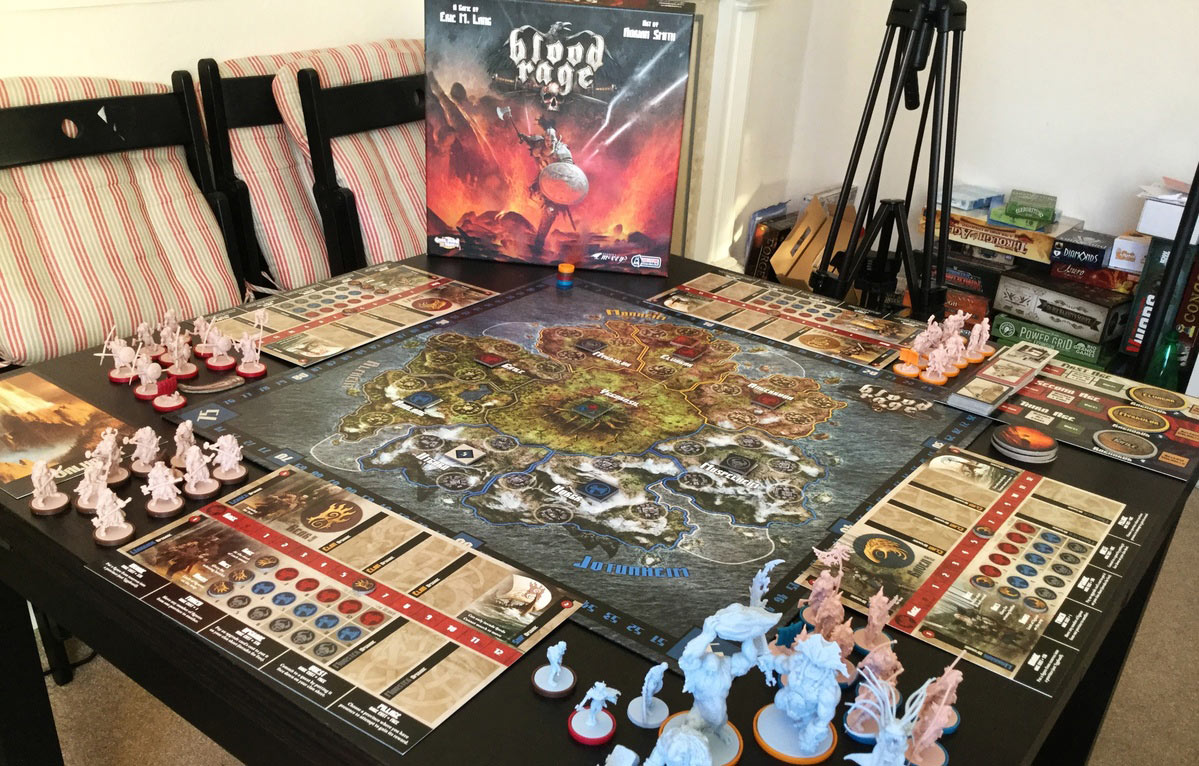
#17: BLOOD RAGE
Review here
Chris: ..
Quinns: Who’s Chris?
Chris: I’m the manager of Shut Up & Sit Down? You keep me in the closet. Blood Rage is my favourite game.
Quinns: So there’s a reason we keep you in the closet.
Chris: Hear me out! I know you weren’t erm.. too fond of this one. It has a lot of plastic and costs a pretty penny. While Inis(h) does the same card drafting to build, control and combat, and tightens up the bolts, Blood Rage unapologetically lets the bolts fly.
Each game you must weigh bringing in new powers or monsters with the same cards needed to fight. Those fights are bloody with lavish and varied minis, but there’s no luck in battles, only the fruits of preparation or the loss from opportunity otherwise taken.
I love high-conflict games, and I felt this one masterfully handled the elements I love most in other games (my faves): area control (Wallenstein, Twilight Struggle, Quantum, Cyclades), diplomacy (Rex, El Grande, A Game of Thrones), card drafting (7 Wonders, Seasons, Sushi Go!), card combat (Kemet, Forbidden Stars, Arctic Scavengers), and multiple win conditions (Chaos in the Old World, Archipelago, 7 Wonders: Duel and the Sid Meier’s Civilization board game). I also found it greater than the sum of its parts, but isn’t that the best thing about boardgames? To each their own, and there’s something for all of us.
Quinns: Aww. Thanks for that. I think the people are probably tired of hearing me complain about this box, so that’s a very welcome bit of positivity.
What we said:
Quinns: At times, cards are so powerful and there’s so little opportunity to be clever on the board that Blood Rage feels like an area control card game where the tokens and board have been injected with human growth hormone. You’ve got these giant miniatures, but they come onto the board with a card, you want them to achieve a goal hidden by a card, and then can be taken off the board just as quickly by a third card. Which is fine! My main problem with Blood Rage is that it’s not a good card game.
Doing well in Blood Rage isn’t about minute-to-minute clever plays. It’s about drafting cards that come together to create a plan, and then playing cards in the order that squeezes the most points out of them. But doing all this planning means you need to predict your friends, too, which in turn means you have to know what cards are out there. Problem is, every card in Blood Rage’s three decks are different. So you need to plan, but your plans are going to be skewered by cards your friends play that you either didn’t know they had, or worse, you didn’t know existed.
To top it off, the cards are tiny half-size things so that they can fit in your player board, which makes holding them absolutely no fun.
I know that you’re looking at these pictures and thinking that you want to play with these cool miniatures. So would I! That’s why I feel that this is such a weird box.
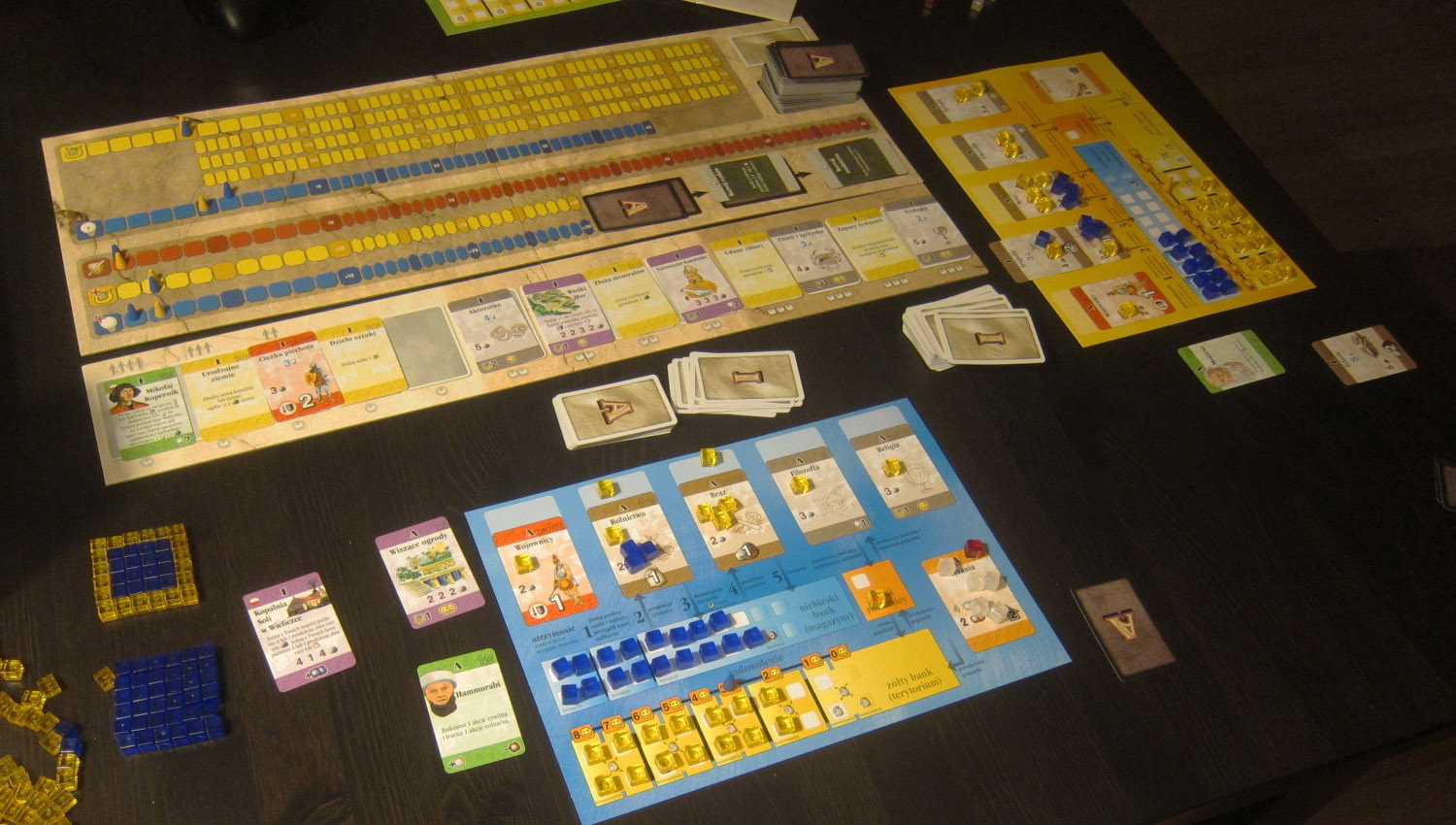
#16: THROUGH THE AGES: A STORY OF CIVILIZATION
Review here
Paul: NO.
Quinns: Paul are you foaming at the-
Paul: Seeing this ride so high is an affront to God. WHAT IS GOING ON? Through the Ages is a reasonably enjoyable and involving game of cards and cubes, for sure, but it’s also overlong, it’s built upon undramatic mechanics and it doesn’t change enough during the two, three, four, FIVE hours of play that you have of it. Card after card comes out and the numbers get bigger and now you have Shakespeare or tanks or something. It has players interacting with each other in the dullest, driest of ways. I am actually furious that this has climbed so high and I’m checking myself into a clinic for anger issues.
Quinns: I know, I know. But just don’t do that yet, ok? We need you to talk about Through the Ages again tomorrow.
Paul: WHAT
Quinns: Jesus Christ Paul, put that chair down!
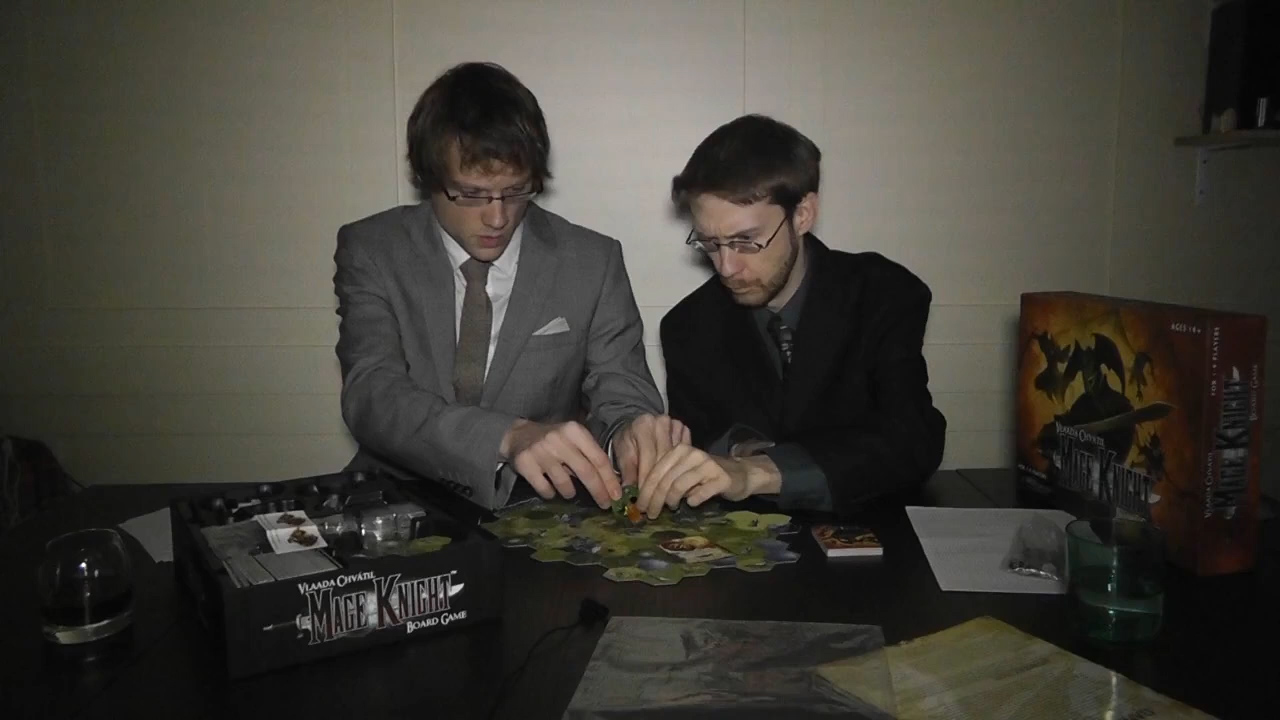
#15: MAGE KNIGHT ![]()
Review here
Paul: I think I’m going to say a similar thing here as I did a few paragraphs up, when we talked about Eclipse. Mage Knight seems to me exactly the type of game that a community of dedicated players would savour. We called it a “gamer’s game” (a bit vague, I know), all those years ago, but it’s surely true. It’s full of systems and moving parts and elaborations and while it’s not so hard to get back on this horse after a long break, Mage Knight is nevertheless complex and you have to watch yourself closely to make sure you don’t miss a rule here or a clause there. It’s terrific, but it’s also taxing.
Quinns: Ah, it’s the game that made us think that designer Vlaada Chvátil might actually be Gandalf. It’s a ridiculous game, and I’m glad that it was the recipient one of our most ridiculous reviews. You know what else is ridiculous? Six years later, the bit of Mage Knight that I find myself remembering the most fondly is that it divides its turns into “day turns” and “night turns”. That does so much work bringing the world to life. It implies that your wizards don’t sleep, and lets Vlaada do all of this wonderful stuff to do with magic being more plentiful in the day, but the night is when you can cast the super-spells that drop the jaws of your opponents. Or your allies! Because let’s not forget, this game can be played in what, eight different modes? Ridiculous.
Once again, I’m left nodding like one of those dipping bird toys at the suggestion that this is the 15th best game ever. Then again, can a game really be that good if neither of us suspect we’ll ever play it again… ?
What we said:
Quinns: For all of its awkwardness to learn, once you’re actually “in”, the game does provide a glorious ecosystem for you to get stuck into. So… what do you think? Should they buy it?
Paul: I don’t know. I think what bugs me is that I love playing board games with anyone, but here’s a game where the barrier for entry is so high. It’s not even a gamer’s game. It’s a board gamer’s board game. Also, I wouldn’t want my friends to think board gaming was mostly burying your nose in your own business and not bouncing off or reacting to the other players.
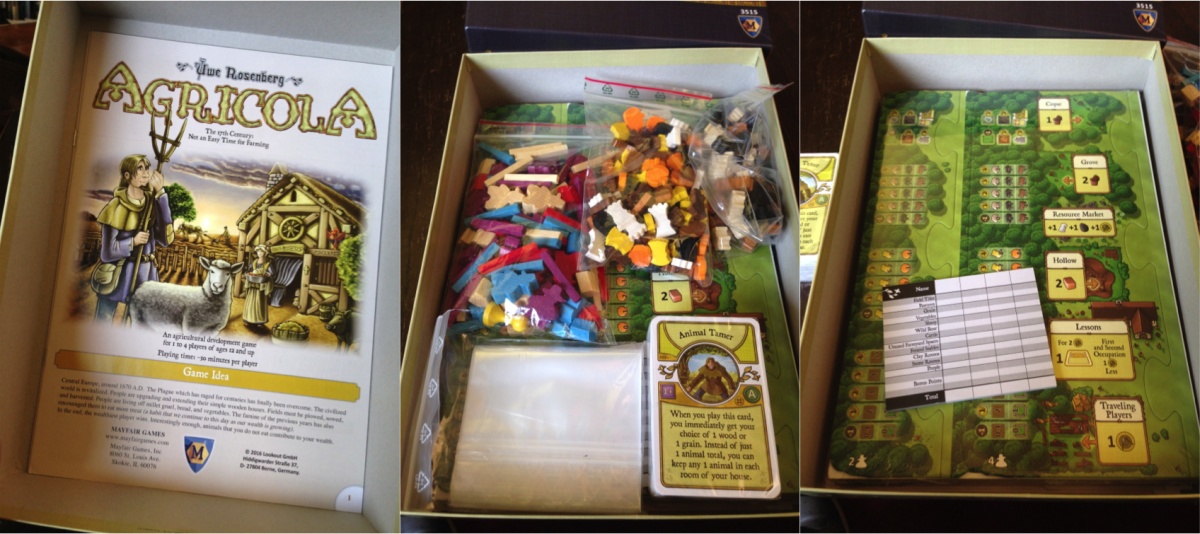
#14: AGRICOLA
Paul: HMM. Right then. I can’t help but feel that Rosenberg’s most famous game has climbed so high because for years it was his best work, but that’s far from the case now. I think ALL of the other Rosenberg resource-rummaging/animal-arranging games are better than this one, but they perhaps haven’t sold nearly as well and thus not had close to the same impact. I think if more people were playing A Feast for Odin, if it were as widely distributed a game, it would be challenging Agricola in the ratings and causing many players to reappraise it. Yes, Agricola is a classic and yes, it remains a good, tight and also uncompromisingly cruel game, but if you’ve not had the privilege of meeting its extended family, you don’t know what you’re missing. That said, one of its cousins has since trumped it in the ratings…
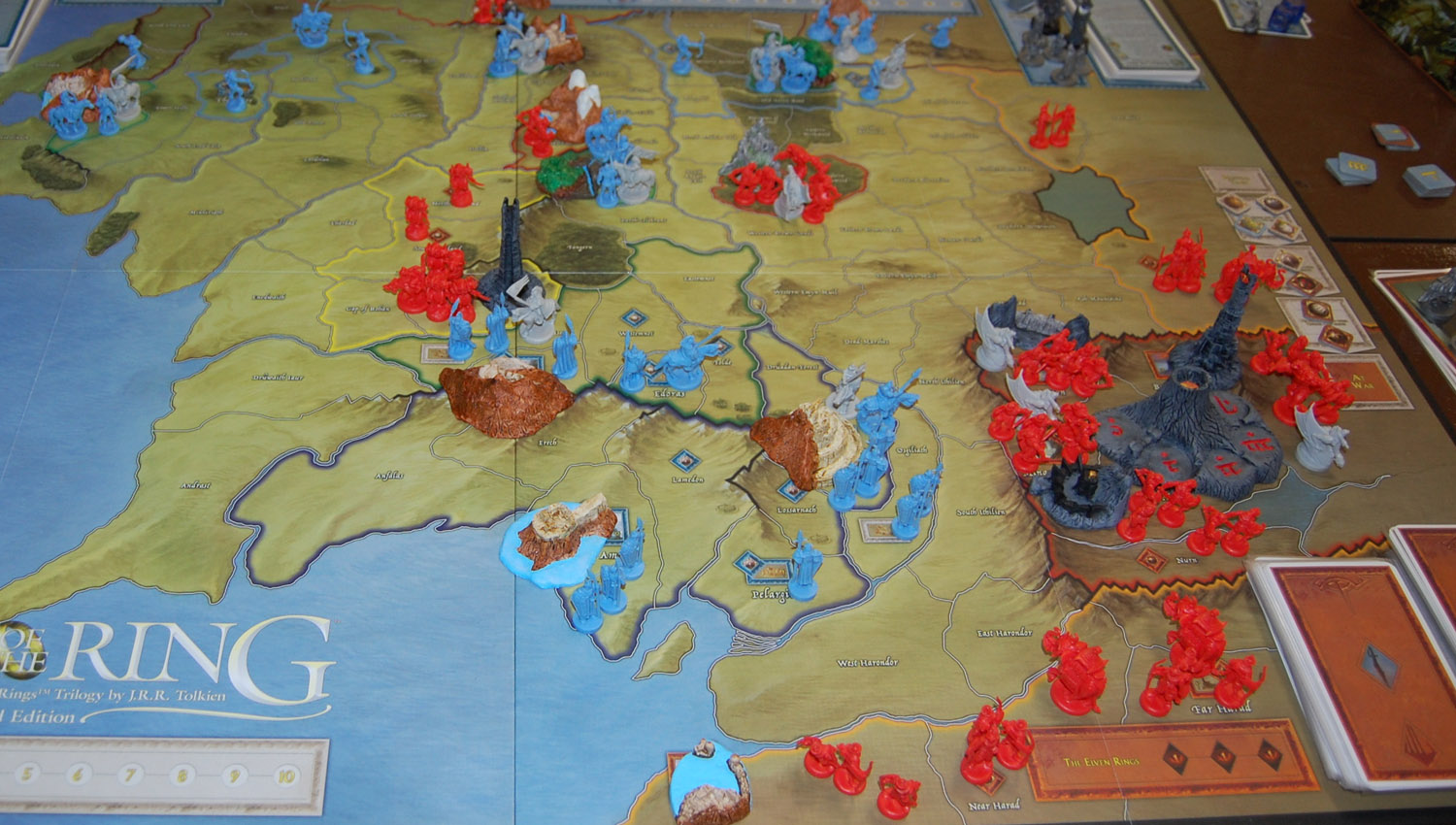
#13: WAR OF THE RING (SECOND EDITION)
Paul: Every day I’m chasing this down. Well, not every day, but it’s something I hope to have my hands on any day now. Though it has a tremendous reputation as being both glorious and gargantuan, it’s not been something I had a desire to try in the past. Yes, I’ve enjoyed my fair share of fantasy settings in my time, but I’m not actually that much of a fan of Tolkien or his world. Things related to D&D or Warhammer have always caught my giant flaming eye first. It was in those directions that I would send my Black Riders. I guess that explains how hobbits always managed to sneak this one past me…
Quinns: I’m looking forward to having your review on the site! In the meantime, here’s an observation: In my six years in the board game industry, this might be the game in the BGG Top 20 that’s mentioned the least. Unlike Twilight Struggle or Through the Ages, which come up in conversation all the time, War of the Ring is just kind of… here. Like a large mole on someone’s belly that they haven’t thought about in years.
Well get ready, everybody! Paul Dean is going to make you think about War of the Ring, and he’s going to do it- er, Paul?
Paul: Soon!
Quinns: And he’s going to do it SOON.
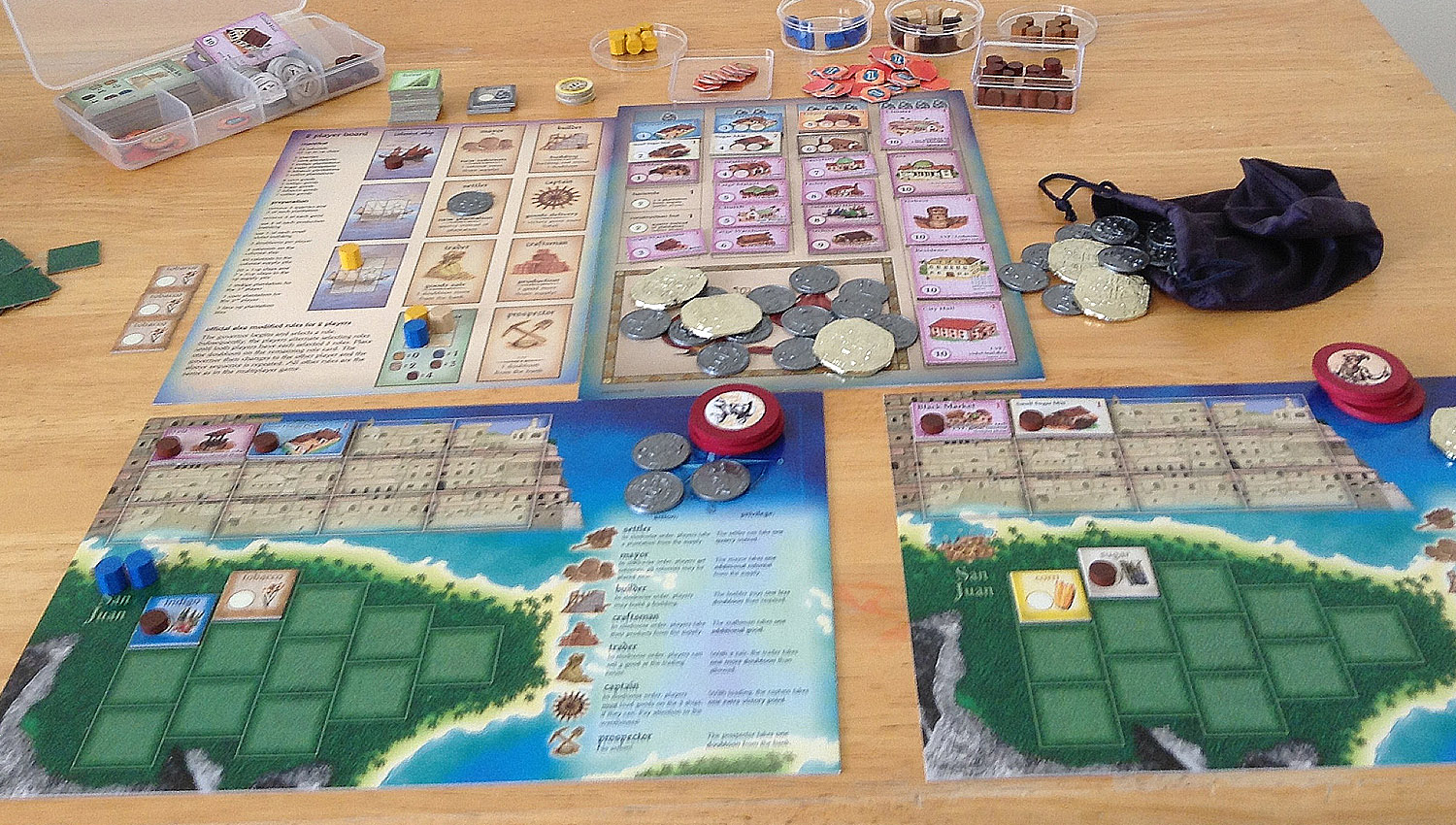
#12: PUERTO RICO
Pip: I played this on holiday at Centerparcs. It did not occur to me that you could play it OUTSIDE Centerparcs. I think I specialised in indigo and fretted about enjoying a colonialist theme. Also a big swan kept coming up to the patio door and glaring in. I assume he or she was disapproving of European colonialism. Or of how badly I was bungling my indigo business.
Quinns: …And following a panicked conversation in the SU&SD Slack channel, it seems that Pip’s avian encounter is the sum total of the team’s experience with Puerto Rico.
Paul: I thought you’d played it?
Quinns: I haven’t played it. Have you played it?
Paul: I don’t think I’ve ever even seen a copy in the wild.
Quinns: Let’s make up for our inexperience with some datamining!
Paul: oh no
Quinns: Paul, did you know that Puerto Rico is the 7th oldest game in the top 100. The oldest is Crokinole, which came out in 1876!
Paul: Did you know 3.4 million Puerto Ricans, more people than live in many US states, are all US citizens but aren’t allowed to vote in Presidential elections? They aren’t represented, like we aren’t representing the game here. So there’s a sort of metaphor. Maybe.
Quinns: I’m going to go and look at what the national bird of Puerto Rico is.
Paul: I know they are home to a frog called the Common Coquí and I definitely didn’t just Google that.
Quinns: OK, say hello to the Puerto Rican spindalis:

Paul: BEST GAME EVER.
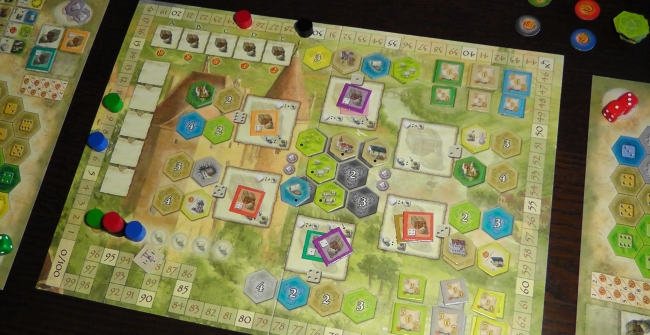
Review here
Matt: Boy I sure am glad this game doesn’t have trains in it. I don’t know about you, but I’m sick to death of trains. Running around the country without legs, carrying passengers and freight, etc. We get it! You’re trains! Give it a rest already, please. If I have to eat another train I’ll be sick.
Paul: I know it looks all pastel and a little bit flat, but I still think this game is a joy and, years after we tapped out our pleasure in a written review, I now feel a tiny twinge of regret that we didn’t put this on camera. I don’t think it would be a tremendous looker, but I think our animated admiration would’ve reached more eyes.
Quinns: Fun fact! The Castles of Burgundy has more ratings on Board Game Geek than 9 of the games in BGG’s Top 10. People are unanimous in thinking that this game is really quite nice, and you know what? I’m one of them. It’s a bold statement, but hey! I’m a bold guy. Sometimes I don’t even bother cooking my eggs all the way through and the white is still a bit gloopy.
You know what else would be really quite nice? If literally any publisher could wrestle the license for this game away from Ravensburger and put out a gorgeous Castles of Burgundy 2nd Edition with bigger boards, thicker cardstock and a sharp, modern redesign of the art, like Brass received.
…But this is Ravensburger we’re talking about, who haven’t bothered to update Puerto Rico’s look since 2003, much less address the near-universal uneasiness of it being a fun game about managing slaves. Let’s just say I’m not holding my breath.
What we said/argued about:
Quinns: Really, what gives Burgundy its appeal is what gives German boardgaming heavyweight Agricola it’s appeal. You start with a blank canvas and get to build something. You watch it grow, and frustrate and reward you.
The meticulous mechanics themselves are what make Burgundy a fat, canny puzzle that you want to master, but it’s the fact that you’re developing a region that gives the game “glue”, if you will. That capacity to hold your attention.
In conclusion, then: Would you recommend this or Agricola?
Paul: Wellllll, I’d be much more likely to recommend Burgundy to new players because it’s so accessible.
Quinns: Accessible? If I was new to the hobby, went to someone’s house and they put this in front of me I’d deliberately spill wine on it.
Paul: But if you persevered instead of being a grubby vandal, you’d get it. You’d enjoy it.
Quinns: Maybe. It is a lovely game. Just a bit… there’s so much… I think I’d emerge at the end of the evening having been so endlessly teased and tested by the game that I’d have no idea if I had fun or not. I’d definitely place it at the more hardcore end of the spectrum.
Paul: Well, nevermind that then. We are, at least, agreed that it’s a fantastic game?
Quinns: A fantastic Eurogame, definitely. If you’re looking for a quiet, cerebral title where you can marvel at the design rather than just a bunch of buffed components and flashy ideas, Castles of Burgundy is here to serve.
SU&SD Takes on the BGG Top 100
100 – 8180 – 6160 – 4140 – 2120 – 1110 – 1

